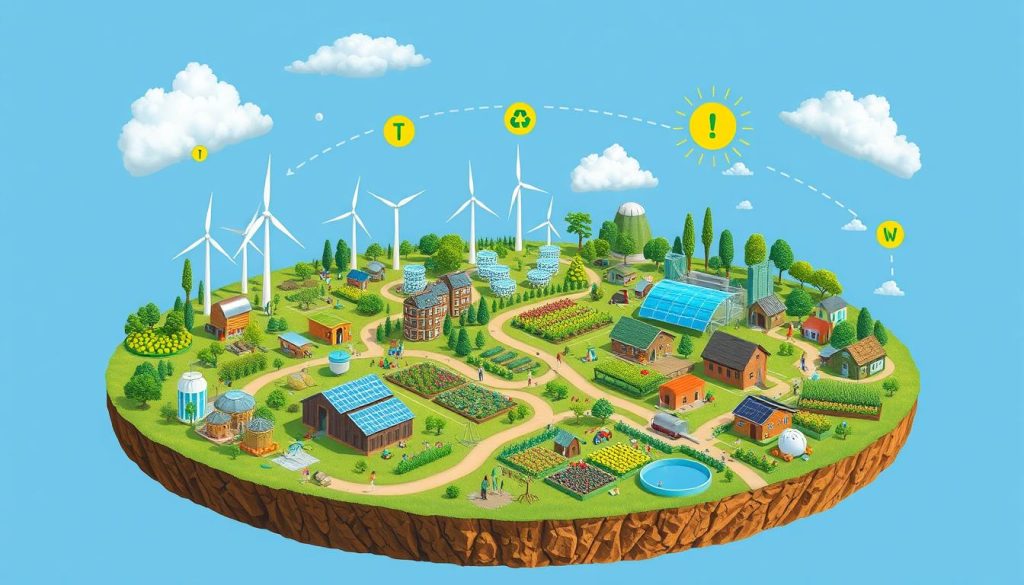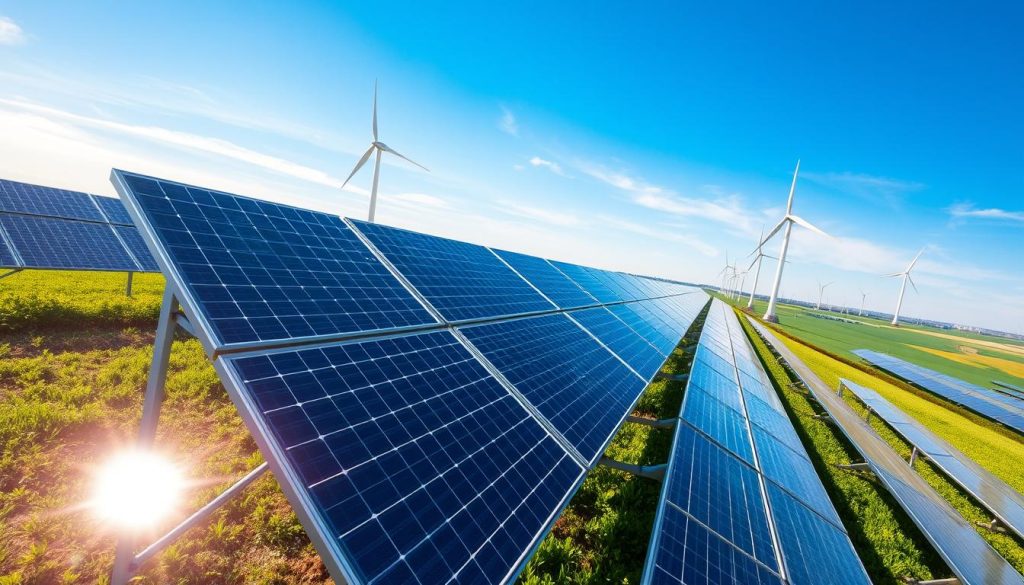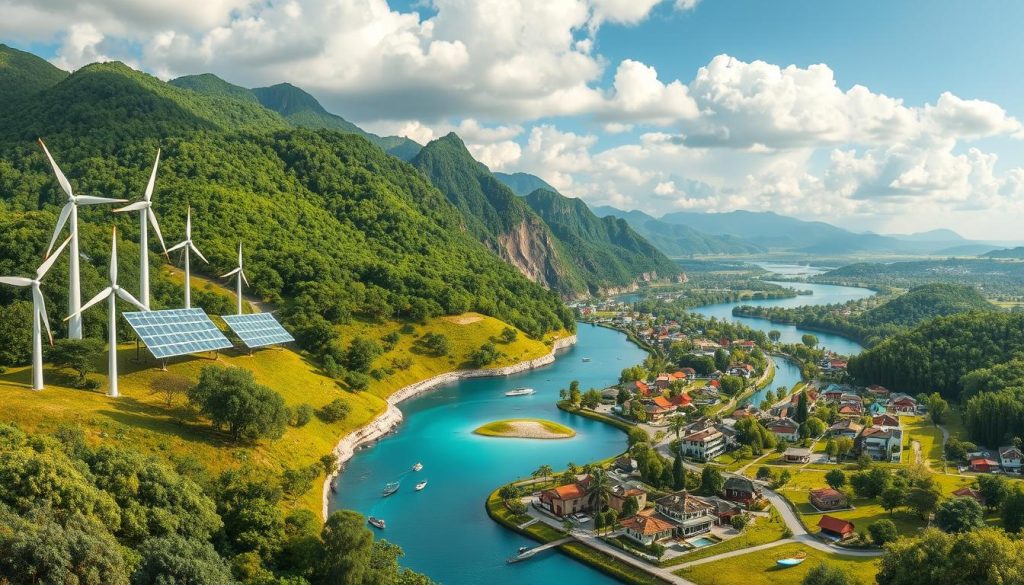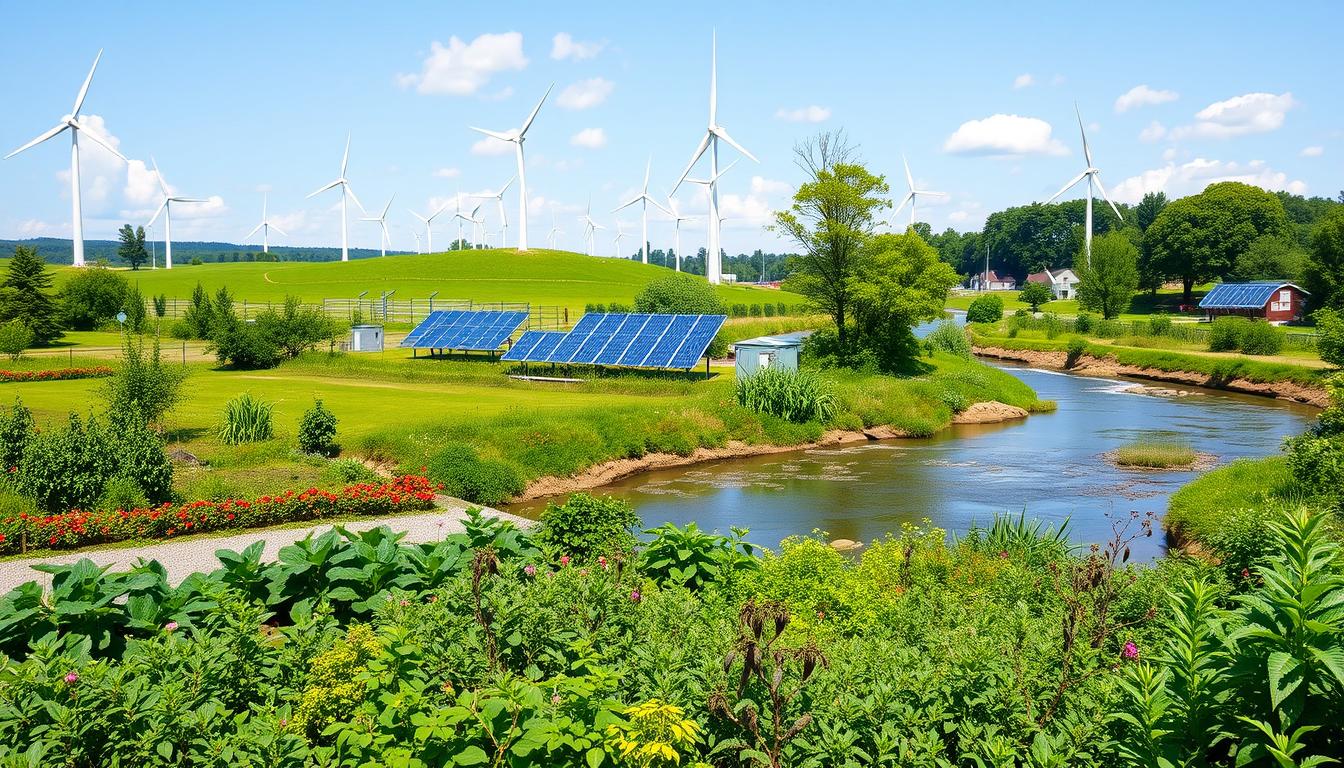Financial and economic sustainability are key in today’s world. They matter for both people and businesses. In this guide, we’ll look at what these terms mean, why they’re important, and how to achieve them.
We’ll cover the basics, the challenges, and how to take action. My goal is to help you improve your financial health and support your community’s economy.
We’ll also discuss the Sustainable Development Goals. These goals aim to make our future better. By following them, we can help create a fairer, stronger, and greener economy. Let’s start this journey together to learn more about financial and economic sustainability.
Understanding Financial and Economic Sustainability
Long-term financial and economic stability is key for everyone. Financial sustainability means keeping your finances stable and growing without using up all your resources. Economic sustainability is about growing the economy while keeping natural resources safe and ensuring fairness for all.
What Does Financial Sustainability Mean?
Financial sustainability is more than just making money. It’s about keeping your finances strong through ups and downs. This means budgeting wisely, saving for emergencies, and having different ways to make money.
What Does Economic Sustainability Entail?
Economic sustainability is tied to caring for the environment and society. It’s about using green resources, helping local businesses, and encouraging new ideas for growth. Investing in green projects and socially responsible investing help the economy grow in a sustainable way.
Understanding how financial and economic sustainability work together helps us make better choices. This approach is vital for facing today’s economic challenges and building a better future.
The Importance of Financial and Economic Sustainability
Financial and economic sustainability are key for businesses, individuals, and communities. In today’s world, where the environment and society matter most, sustainable practices are vital. They drive long-term success.
The Role of Sustainability in Business Success
Sustainable business practices help the planet and can boost profits and reputation. Companies that focus on Impact Investing and follow Environmental, Social and Governance (ESG) Criteria stand out. They are ready for economic and environmental challenges.
By using renewable resources, cutting waste, and promoting a positive work culture, businesses grow stronger. They secure a bright future.
Benefits for Individuals and Communities
Financial and economic sustainability benefits everyone. A stable economy means more financial security for families. They can plan for the future and handle surprises.
Sustainable practices also improve life quality, reduce carbon emissions, and strengthen community bonds. They make our lives better and our planet safer.
By focusing on financial and economic sustainability, we can build a better future. Businesses will flourish, communities will thrive, and our planet will be protected. It’s a complete strategy for a sustainable and fair tomorrow.
Key Components of Financial Sustainability

Long-term financial stability comes from many angles. Let’s look at the main parts that help you build a strong financial base and secure your future.
Sustainable Budgeting Practices
Having a solid budget is key to financial stability. It means tracking your money, spending, and savings well. This way, you can make smart choices that match your financial goals. Sustainable budgeting helps reduce your impact on the environment and builds your financial strength.
Building Reserves and Emergency Funds
Life can throw unexpected challenges that affect your money. That’s why saving for emergencies is vital. These funds help you handle sudden costs, like medical bills or losing your job, without harming your long-term savings. Keeping a good emergency fund is a sign of financial stability.
Diversifying Income Streams
Having just one income source can be risky. It’s better to have different ways to earn money. This could mean finding passive income, starting a side business, or investing in income-generating assets. Diversifying your income helps you deal with financial ups and downs and supports a sustainable economy.
By focusing on these financial sustainability elements, you can make better choices, grow your wealth, and secure a brighter financial future. Prioritizing sustainable practices, saving for emergencies, and exploring various income sources can boost your financial resilience. This, in turn, supports a more sustainable economic system.
Exploring Economic Sustainability Strategies

We’re working towards a greener future. This means finding new ways to be economically sustainable. We’ll look at using renewable resources, supporting local businesses, and how innovation can help grow our economy sustainably.
Renewable Resources and Their Impact
Switching to renewable energy like solar, wind, and hydropower is key. It helps us use less fossil fuels and fight Climate Change Mitigation. This shift also creates jobs and boosts growth in green industries.
Supporting Local Economies
Helping local economies is also important. Buying from local businesses supports our communities and cuts down on carbon emissions. It also encourages local innovation and entrepreneurship, making our economy stronger.
The Role of Innovation in Economic Growth
Innovation is essential for sustainable growth. New tech in renewable energy and circular economies opens up opportunities. It encourages creativity and entrepreneurship, leading to green and profitable ideas.
By using these strategies, we can build a future where the economy and environment thrive together. This will create a more sustainable and resilient economy for everyone.
Challenges to Achieving Sustainability

We all want a sustainable future, but big challenges block our way. Economic inequality and climate change are two major hurdles. They affect people, communities, and our planet deeply.
Economic Inequality and Its Effects
Economic inequality is a big problem worldwide. It hinders our goals for a better future. Wealth gaps limit access to education and healthcare, trapping people in poverty.
This cycle of poverty harms both individuals and communities. It makes it hard for us to work together towards a sustainable world.
Climate Change and Environmental Issues
Climate change is another huge challenge. It causes environmental damage, like pollution and loss of biodiversity. These problems harm our planet and people’s lives.
Fixing these environmental issues is key to a sustainable future. We must act now to protect our planet for everyone.
To beat these challenges, we need to work together. Governments, businesses, and civil society must join forces. We should focus on reducing inequality, using clean energy, and saving the environment.
This way, we can create a fair and strong future. One that meets the Sustainable Development Goals and ESG criteria.
Taking Action for Personal Financial Sustainability
Reaching financial sustainability is a journey, not a final goal. By acting now, we can secure our financial future. This helps achieve economic sustainability. We’ll look at ways to set financial goals, manage debt, and invest responsibly for the future.
Setting Realistic Financial Goals
Start by setting goals you can reach. Imagine your financial future, like saving for a house or retirement. Break down these big dreams into smaller, doable steps. Make a plan with a timeline to keep you on track.
Strategies for Debt Management
Debt can block your path to financial stability. Plan to pay off high-interest loans and credit cards. This frees up money for saving and investing. Consider combining debts or talking to creditors for better rates. Managing debt well is crucial for long-term financial health.
Investing for the Future
As you tackle debt and build savings, look into values-based investing. Impact Investing can help you make money while doing good. Look for solid investment options, spread out your investments, and check your progress often. This ensures your investments meet your goals and values.
By following these steps, you can build financial stability. This not only benefits you but also your community. Together, we can create a better future.
Measuring Sustainability Success
Tracking my progress towards financial and economic sustainability is key. I set key performance indicators (KPIs) to see how well my efforts are doing. This helps me understand the impact of my sustainability work, whether it’s personal or for my business.
Key Performance Indicators (KPIs)
Important KPIs for measuring success include my savings rate and debt-to-income ratio. I also look at how diverse my income streams are and how much of my portfolio is in green finance or ESG investments. These metrics show how stable and resilient my finances are, and how much I contribute to sustainable practices.
Tools and Resources for Evaluation
To keep track of my progress, I use various tools and resources. Online platforms for budgeting and personal finance give me detailed reports on my spending and savings. There are also ESG data providers and sustainability rating agencies that assess companies’ environmental and social practices. This helps me make informed investment choices.

